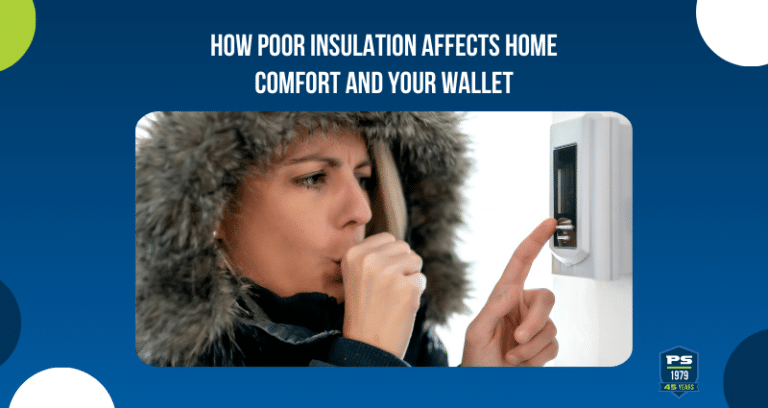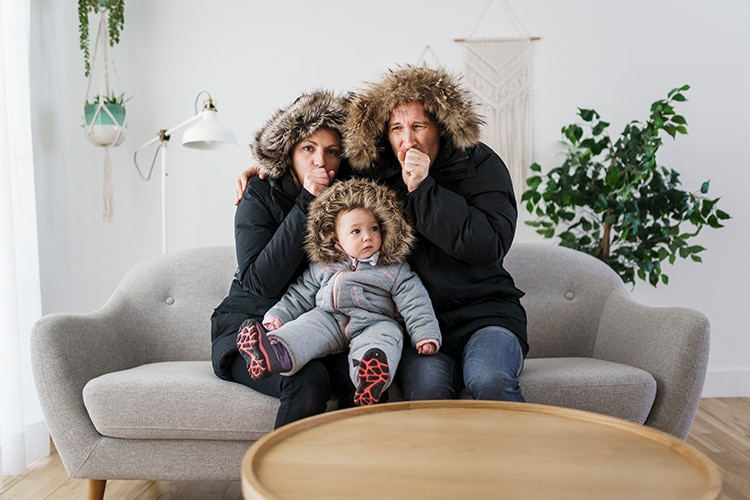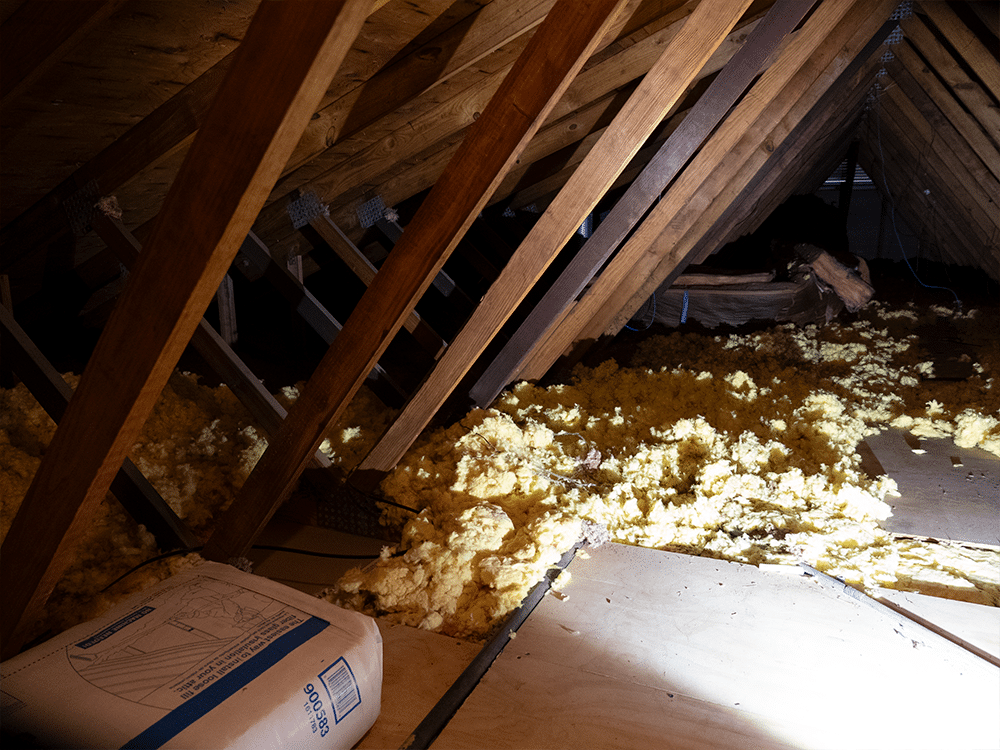
When it comes to comfort in your home, insulation plays a crucial role, especially in Chicago. Many homeowners across our service area regularly experience temperature fluctuations and rising energy bills year after year. Poor insulation is most likely the cause of this. It can affect home comfort, increase noise levels, and increase your energy bills.
Understanding Home Insulation and Its Benefits
Attic insulation is a barrier between your home’s interior and outside weather. It works by trapping tiny air pockets that slow down heat transfer, keeping your home warmer in the winter and cooler in the summer. The effectiveness of insulation is measured by its R-value; the higher the R-value, the better it is at resisting heat flow. Without proper insulation, warm air seeps out in winter, and heat sneaks in during summer, leaving you with an uncomfortable living space and increased energy costs.

Signs of Poor Attic Insulation
How do you know if your home’s insulation is underperforming? Here’s what to look for:
- Temperature Fluctuations: Walking from room to room and feeling temperature swings is a telltale sign of poor insulation. Drafts near windows, cold walls in the winter, and rooms that heat up too much in the summer are all red flags.
- Higher Energy Bills: In Chicago, heating and cooling can make up a significant portion of your energy bill. If those bills are steadily increasing, even when your usage remains consistent, poor insulation could be the cause. Your HVAC system might work overtime to compensate for escaping conditioned air, driving up costs.
- Noise Pollution: Poor insulation allows temperature changes and noise. If outside sounds penetrate your home too easily, upgrading to more effective insulation might be time.
- Unwanted Pests: Insulation gaps can provide an open invitation to pests. Rodents and insects love to exploit these spaces, turning your attic or crawl space into their new home.
How Poor Insulation Affects Home Comfort
Old and compacted attic insulation turns your home into an uncomfortable mix of hot and cold zones. Beyond temperature, poor insulation can lead to excessive indoor humidity during the summer and dry air in the winter. Over time, these fluctuations can cause problems like mold growth, affecting your indoor air quality.
The Financial Impact on Energy Bills
Here’s where the problem hits hard—your bank account. Poor insulation means your HVAC system has to work constantly to maintain a comfortable temperature. This extra workload leads to higher energy bills. Properly sealing and insulating your home can save up to 15% on heating and cooling costs. Poor insulation also accelerates the wear and tear on your HVAC system, shortening its lifespan and increasing the likelihood of costly repairs or premature replacement. Tack on the potential for structural damage, like frozen pipes or moisture problems, and the hidden costs of inadequate insulation can escalate quickly.
Improving Your Home’s Insulation
Now that you know what poor insulation can cost you, let’s talk about how to fix it. Here’s how we, at Perma-Seal, can help:
When it comes to a comprehensive solution, professional insulation services make all the difference. Our team can conduct a full heat loss consultation of your home to identify insulation gaps and recommend the best course of action. We offer both attic insulation and crawl space and basement insulation services to help seal the gaps in your insulation.

Key Takeaways: Ignoring Your Insulation Might Be Why Your Home Is Uncomfortable and Costing You More Money
The hidden costs of poor insulation are too big to ignore. From fluctuating temperatures to high energy bills, the effects are wide-reaching. But the good news? They’re also fixable. By addressing your home’s insulation, you create a more comfortable, energy-efficient living space while saving money.